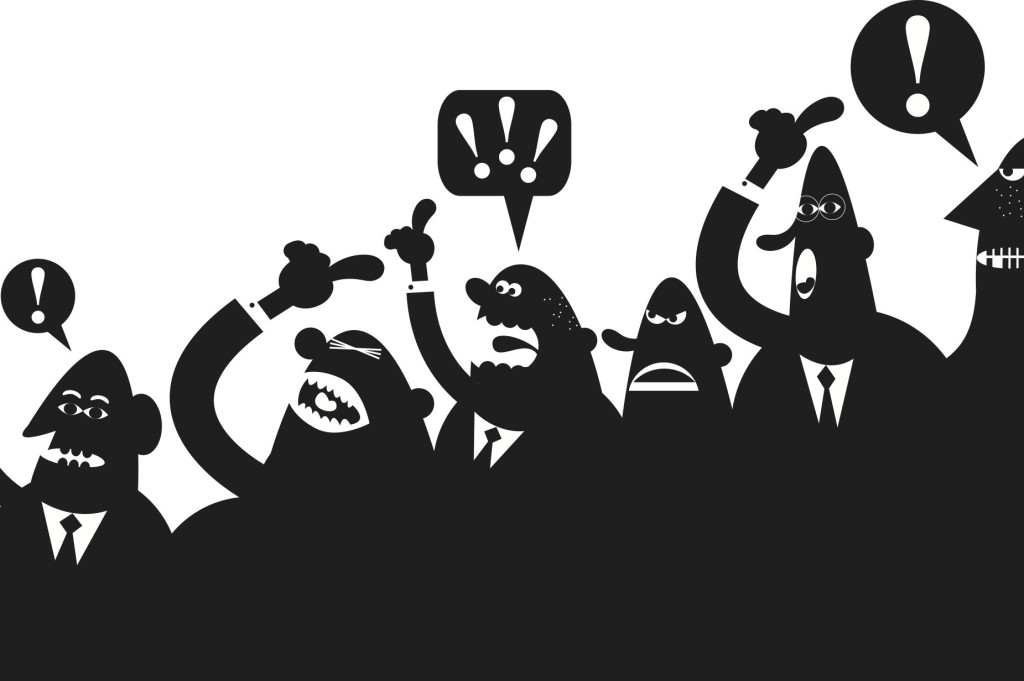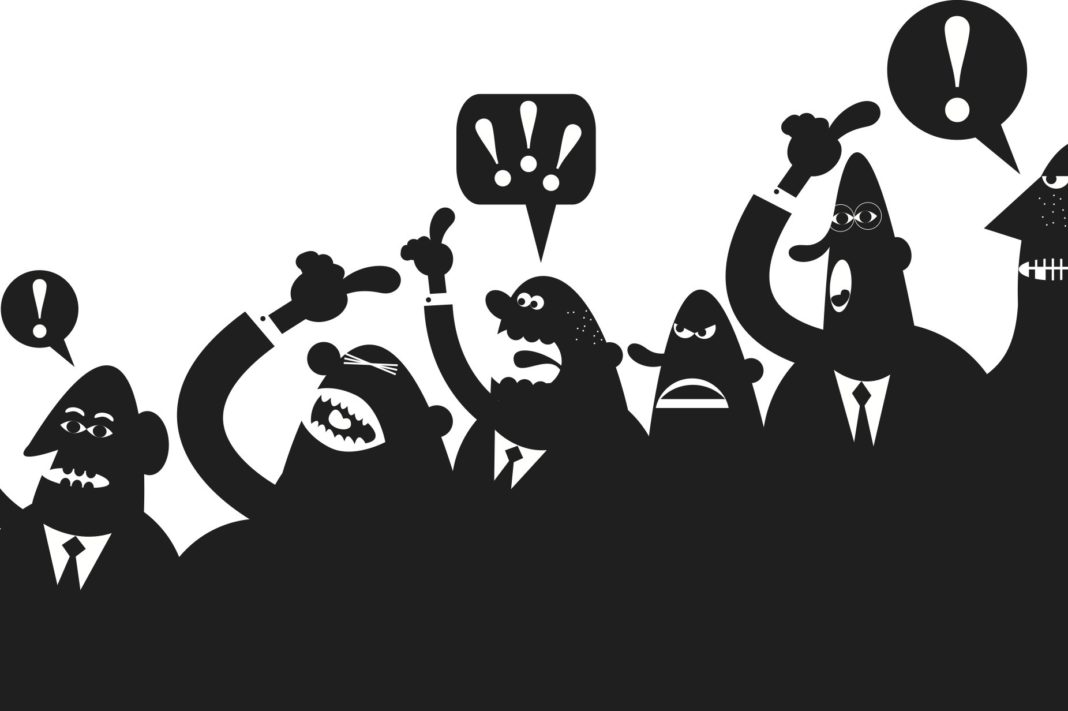
I live with about 56,000 books. I started collecting them at age 7, with the goal of better understanding the world and everything in it – well, as much as I could digest. My library is above all else a reference library. My upbringing and education, especially in high school, reinforced my desire to seek out the facts and understand the world around me through them.
Surrounding all those facts are opinions, speculations, and interpretations – by everyone from Nobel Prize winning economists to friends, family, and journalists and broadcasters. I work hard to make up my own mind, but nevertheless certain ways of seeing the world can be so pervasive that they are hard to resist. Especially during Presidential election campaigns, another of which we are rapidly approaching.
I have found two mindsets particularly “unhelpful.” Despite how common these mindsets are, I have found they more often cloud understanding than clarify our thinking.
I think both tend to dehumanize us.
The first one is “motive doubt” or cynicism. I have learned to be a skeptic, and challenge pretty much everything I hear (especially in this Internet age of plentiful opinion and plentiful facts), but my skepticism is very different from doubting someone’s motives.
Too often I hear people say about those with whom they disagree, “They are cheats and liars; they have a hidden agenda. They can’t really believe what they are saying.” It does not matter whether one assails “giant corporations” or “left-wingers” or any other group, it seems easy to think they have ulterior, evil motives.
While some portion of whichever group you take issue with may in fact have malicious intent, I have found that making such an assumption is usually a big mistake.
Think about it this way – of all the people you have met in your life, how many are really crooked and immoral? How many sociopaths have you dealt with in your daily life? How many of your neighbors are burglars and thieves? Unless you work in law enforcement, the criminal justice system, or prisons, I think an honest answer is likely, “Very few.”
While my observations lead me to believe that stupidity, narrow thinking, and poor judgment are far more common than ulterior motives, I think it’s just as much a mistake to think those you disagree with are not as smart as you are. It is a very high-risk, “low return on emotion” strategy for understanding the world.
When I worked in shopping center development for the May Department Stores Company, one of our partners was Charles Drury of Cape Girardeau, Missouri. This small town plasterer and his brother had expanded into construction, then development, and finally operated restaurants and hotels. His hands were rough and his manner a bit unpolished. In one session with very well-dressed New York investment bankers, I realized that at the end of the meeting, the polished young MBA’s from the big city thought they had outsmarted Charles and gotten the better end of the deal. Here was this country bumpkin, what could he know about sophisticated real estate finance? I took great delight in knowing that in a few hours, it would sink into their heads that his thinking was far more advanced than their own, and they were the ones who looked stupid.
Thinking this way about others is bad for me, because the moment I discard someone as dishonest, immoral, or unintelligent, I can then readily discount everything else they say, and not take them seriously. That’s especially not a good idea if that person is your President, Governor, or Senator. (Show me a politician of any stripe who has delivered on every campaign promise!) If I say that a politician is evil and misleading the public, any hope of serious thought and intelligent reaction on my part begins to decline.
One of my college teachers, economist Milton Friedman, debated young Marxists and socialists in our early 1970s classroom. It was probably one of the few cases where the “other side” had IQs (or whatever measure you choose) equaling Mr. Friedman. But he always “won” the debate. Why? Because he better understood Marx, Engels, and their beliefs more than any of their followers did. He had studied more and thought harder about those ideas and their implications. He took the debaters very seriously and never doubted their intentions. He had a fundamental respect for everyone he met, as all my best teachers did.
I have spent over 50 years studying enterprises of all types, from giant corporations to universities and governments. My biggest conclusion is that they are ultimately human, because they are human creations run by humans to serve human purposes.
Becoming head of a big company does not automatically turn people into monsters or idiots. Neither does believing in Marx and Lenin (ideas which proved fatal to millions and which I personally abhor).
The people who lead enterprises have the same flaws and inherent potential of all humans.
In the year(s) ahead, I want to try to maintain some level of respect for everyone I disagree with.
The second mindset that I want to avoid is what I call “false dichotomies.” So often the press and others want us to believe that it is “us vs. them,” that our nation (or our party or the world) is extremely divided, even irreconcilable. I find this to be another dangerous strategy for comprehending the world around us.
Moving into an election year, we find more and more journalists and broadcasters who can generate controversy, buzz, and bigger audiences by maximizing the differences between us. Are you red or are you blue? Are you black or are you white? Are you gay or are you straight? You and I could never get along!
We are told in books and on the news that there is a struggle between old and young, between red and blue, between urban and rural, between academics and “reality,” between business and government, between the interior US states and the coastal states, between Christians and Muslims, and on and on.
Yet as I survey the real world, I see that most such social phenomena are spectra spread across a range of possibilities rather than two segregated clumps. Computers may be binary; humans less so. People are of all ages from 0 to 120, and not easily divided into big fighting groups. Much of America is purple, neither red nor blue, and that is the America I love the most. (Only in politics and sports is 55-45 considered a crushing defeat; in most aspects of life, 60/40 implies diversity.)
Americans today (and in the future) live primarily in suburban and exurban areas. Even here in the Austin metropolitan area, with a rising urban buzz, about two-thirds of our future residents will live in the counties surrounding the core, not in the country and not in the heart of the city.
Which is more bureaucratic, the commercial banks I suffer with daily, or the Texas voter registration operation, which acts more like a customer-first business?
Have you ever met a Republican who is pro-choice and owns no guns? Have you ever met a Democrat who is a business person and a devoted church-goer? I have met plenty of both. But such creatures are as rare as Bigfoot on the cable news networks.
I am not saying there are no dichotomies, or that such analysis is never valid. But I am convinced such thinking is applied far more often in today’s discussions than is warranted by reality.
As I have aged, I have become increasingly enamored with sports, both collegiate and pro. It is great fun to cheer for my teams, and to momentarily have an evil enemy. (Don’t ask my opinion of the University of Oklahoma or the New England Patriots! They’re all bums!)
But placing ourselves on such single-minded and clearly-separated “teams” for the important things in life is a mistake. Tribal loyalties and thinking may have caused as much damage as any force in human history. Trade and communication with strangers have been the main disseminators of ideas, health, races, and religions, and ultimately of peace and prosperity.
What all this comes down to is humanizing our thinking. Celebrating individuals rather than groups, celebrating our diversity and the uniqueness of each of us.
I grew up in a conservative church (both my grandfathers were ministers). When one of the teenage girls who attended Sunday School became pregnant, I was pretty sure she would be burned at the stake based on what I had heard for years from the pulpit. Instead, the men and women of the church circled around her like covered wagons, and made sure that child entered the world happy and loved, as was the mother.
It is hard to hate someone you truly know.
The same is true of race and every other of the many dimensions of human existence and experience. It is just as silly to assume a capitalist or communist is inherently dishonest or stupid as to assume that people of another color or gender are inferior (or superior).
Sometimes, even “science” is on the wrong side. Pretend for a moment there is a “proven” correlation between growing up in a poor Jamaican neighborhood in New York and “failing” in life. Even if that were true “in most cases,” using it to judge individuals, to set educational or any other policy, would have denied Colin Powell a chance for greatness. Our society needs all the greatness we can find.
Assuming someone is doomed because their parents divorced, their mother is in prison, or their great-grandparents were slaves serves no one well, especially not the exceptional individuals who rise above such challenges.
The minute you see people as individual human beings, the minute you look them in the eye, the minute you see them playing with their children, you will be in a better position to talk to them, to understand why they believe what they believe, and perhaps – if we are lucky – to make the world a better place in ways big or small.
If I dwell on my friends’ faults, will I have any friends left? If I dwell on my own faults, will I have any me left?
None of us is perfect. Each of us is here for a reason. Each of our strengths has its balancing weakness.
None of this means I do not have strong beliefs or would not argue or fight for them. But the more I humanize my thinking, the more I seek to understand people rather than ridicule them, the more generous and empathetic I am, the better off I (and they) will be.
At least that’s my take as we enter another year – may your 2015 be the best yet!
Gary Hoover
See more articles like this on my blog Hooversworld.
Click here to sign for my free twice-monthly newsletter and get more articles like this directly to your inbox.











